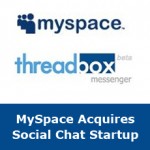 New York — Every generation has its fair share of people who are ingenuous enough to believe that there is a free lunch — only to find out the painful way later on that they have been conned. A bout of spam disguised as a free iPad offer is compromising the accounts of social network users on Facebook and Twitter.
New York — Every generation has its fair share of people who are ingenuous enough to believe that there is a free lunch — only to find out the painful way later on that they have been conned. A bout of spam disguised as a free iPad offer is compromising the accounts of social network users on Facebook and Twitter.
Many social-networking sites have encountered “Free iPad” offers with a link that reroutes them to another site which asks for personal information, according to the IDG News Service. The message usually comes from a trusted source or friend whose account has already been hacked.
Twitter’s security-related account @safety warned users of the scam, Wednesday, stating that it was resetting passwords of affected users. “If you have received a message promising you a new iPad, not only is there no iPad, but also your friends have been hacked,” Twitter said.
Twitter also said it will be “dispatching out password resets to hacked individuals.”

The message “offering” the free iPad is similar to this one: “u have to check out this website its glitchin right now and sending out ipads to everyone for free!“
Well, a similar scam is also present on Facebook, but it has affected a relatively small number of users, you might have spotted a message that offers a free iPad, and we would suggest you avoid this like a plague since this scam that spreads through hacked accounts will ask you to check out a website that touts to send free iPads to everyone who responds.
According to company spokesman Simon Axten. “It is affecting an extremely small percentage of people on Facebook, but we take all threats seriously,” he said via e-mail.
Gerome Stevens first noticed that his Twitter account had been used to direct message contacts late Wednesday. He is not sure how the scammers got into his account, but they sent direct messages to his friends. He said the messages continued, even after he had changed his password.
The messages his friends received contained a link to better-gifts.net. That Web site asks for personal information, and then directs the user to a variety of promotional offers from legitimate companies such as Netfilx, the Doubleday Book Club, and Columbia House DVD.
Online marketing programs pay cash for Web traffic, and hackers have found that by phishing victims and then using that information to break into legitimate Twitter and Facebook accounts, they can earn money.
This type of spam is particularly effective, because the messages appear to come from a trusted source.


